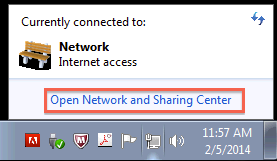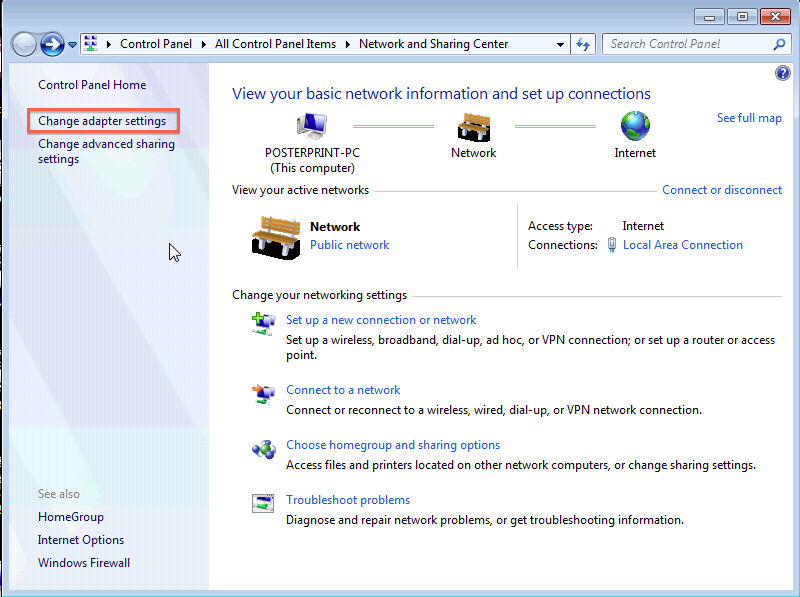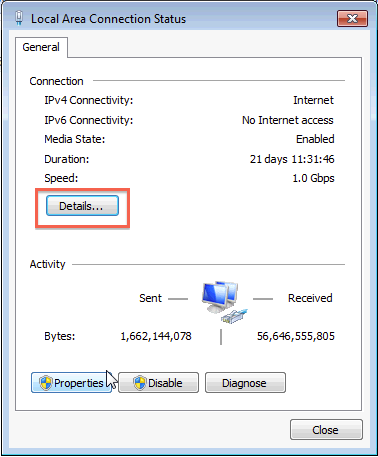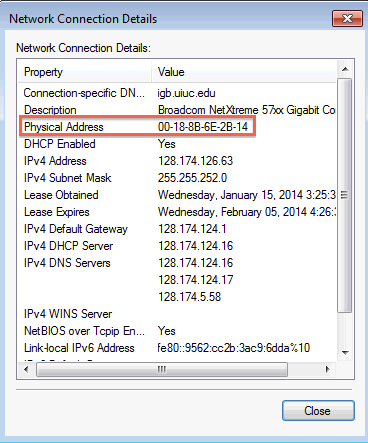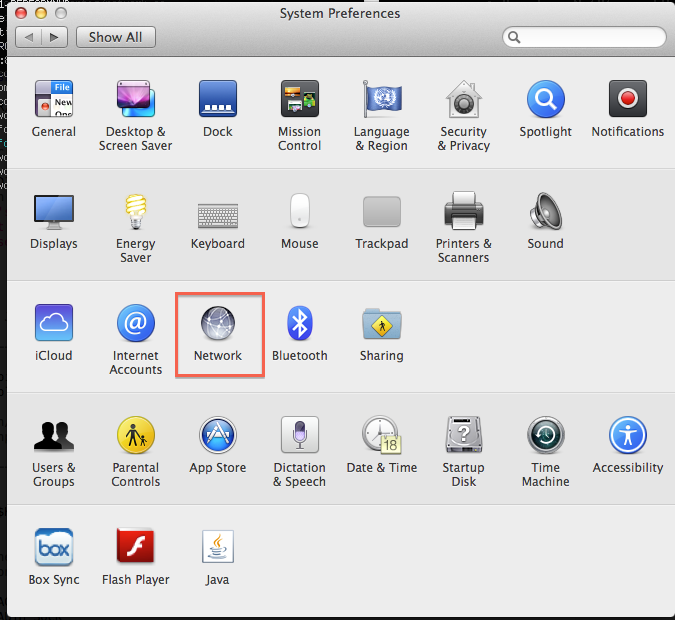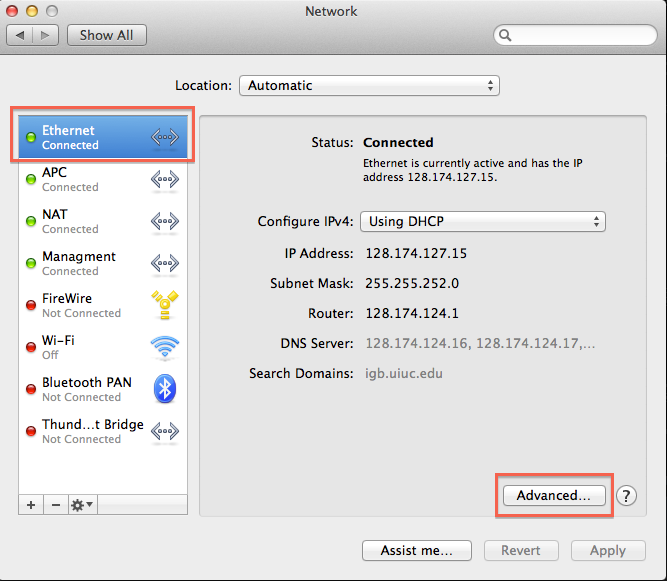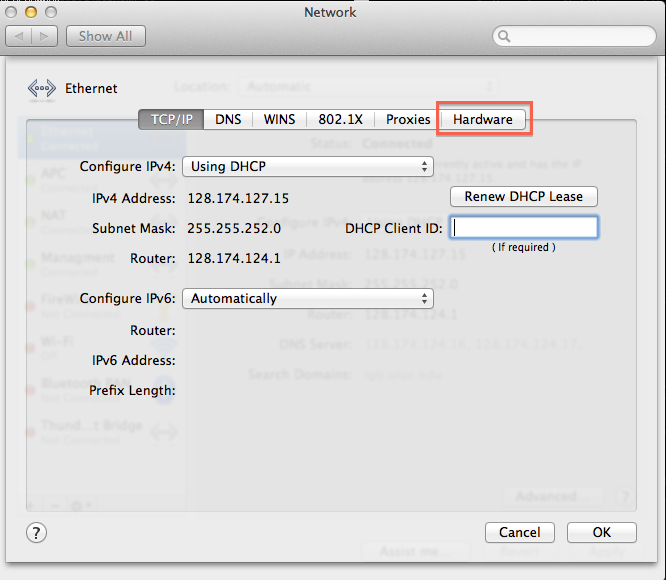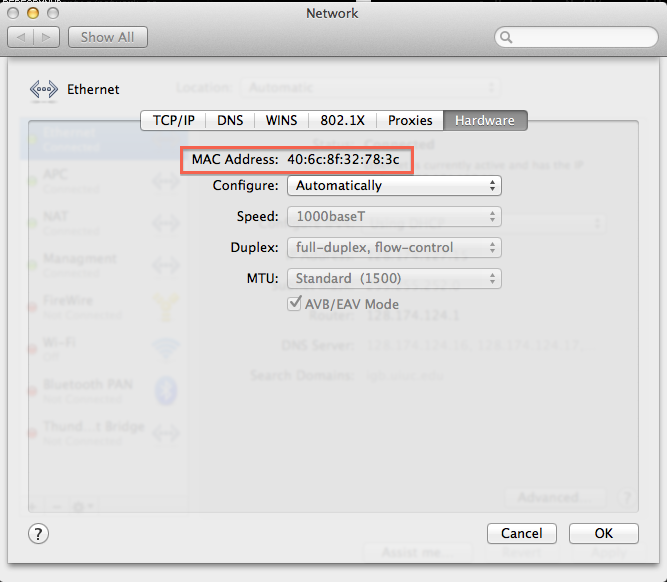Hardware Address: Difference between revisions
Jump to navigation
Jump to search
No edit summary |
|||
| Line 5: | Line 5: | ||
=== Windows 7 === | === Windows 7 === | ||
* At the bottom right corner of the screen click on Network > Open Network and Sharing Center | * At the bottom right corner of the screen click on Network > Open Network and Sharing Center | ||
[[image:Windows7_1.png]] | |||
* Click on "Change Adapter Settings" | * Click on "Change Adapter Settings" | ||
[[image:Windows7_2.png]] | |||
* Select "Local Area Connection" | * Select "Local Area Connection" | ||
[[image:Windows7_3.png]] | |||
* Click on "Details" | * Click on "Details" | ||
[[image:Windows7_4.png]] | |||
* The MAC Address is the "Physical Address" listed in the table | * The MAC Address is the "Physical Address" listed in the table | ||
[[image:Windows7_5.png]] | |||
=== Windows 8 === | === Windows 8 === | ||
Revision as of 15:05, 5 February 2014
How to Find MAC Addess
- Use the steps from the appropriate section below to find your computer's MAC Address
- Once you have found it, enter into the field in the form. Please leave out hyphens and colons.
Windows 7
- At the bottom right corner of the screen click on Network > Open Network and Sharing Center
- Click on "Change Adapter Settings"
- Select "Local Area Connection"
- Click on "Details"
- The MAC Address is the "Physical Address" listed in the table
Windows 8
Windows XP
OS X
- Go to System Preferences and select Network
- Make sure Ethernet is selected on the left side menu and click on "Advanced"
- Click on the far right tab called "Hardware"
- Mac Address is listed at the top
